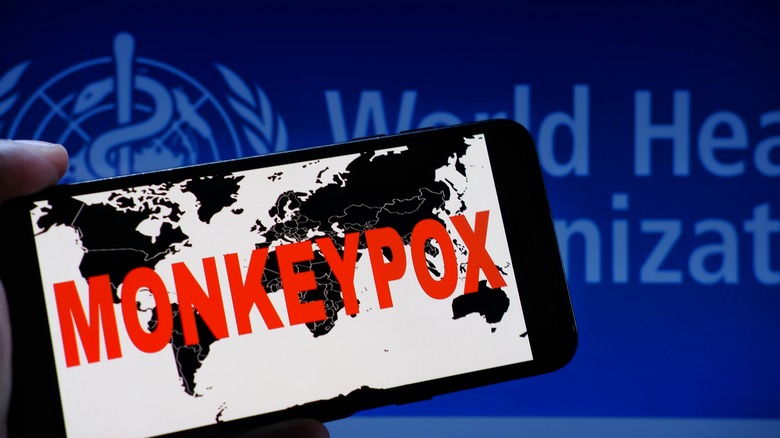What Officials Want You To Know As Monkeypox Cases Spread
Over 350 reported cases of monkeypox have been detected in more than 20 countries (via Vox). These countries include Europe, Canada, Australia, and the U.S., reports USA Today. In the United States, at least ten cases have been detected between California, Colorado, Florida, Massachusetts, New York, Utah, Virginia, and Washington (per NBC News).
"A monkeypox outbreak of this scale and scope across the world has not been seen before," leader of the White House pandemic preparedness office, Dr. Raj Panjabi, announced in a news brief (per USA Today). Even amid the continued spread of cases, however, officials stress that there is currently no cause for alarm amongst the public.
As reported by Vox, many epidemiologists believe there are specific factors unique to the outbreak that allow for easier containment in comparison to COVID-19. What sets the monkeypox virus apart from COVID-19 is the nature of the virus itself. Exposure to the monkeypox virus primarily occurs through direct skin contact. In comparison to the airborne transmissibility of COVID-19, experts say the need for physical contact means we're looking at a much slower rate of community spread.
How health experts are preparing to mitigate the spread of monkeypox
Monkeypox symptoms often do not emerge for an average of seven to 14 days following exposure (via Vox). With up to a 21 day incubation period, this lends health experts adequate time to intervene through contact tracing efforts. Lastly, unlike COVID-19, experts do not believe asymptomatic individuals are likely to be contagious. This limits the chances of individuals unknowingly infecting others. The presence of distinct symptoms such as fever, rash, or lesions would also allow both healthcare professionals and individuals to recognize signs of infection and seek prompt treatment as needed.
With vaccine production, antiviral treatments, and testing measures already being put in place, the current administration is confident in their ability to contain the monkeypox outbreak and are continuing to monitor its progression closely (via USA Today). Experts encourage anyone who has monkeypox symptoms to contact a doctor.
The U.S. Centers for Disease Control and Prevention (CDC) director Dr. Rochelle Walensky announced in a public statement, "Monkeypox is not a new or an unknown disease. CDC has been preparing for monkeypox for decades. We have the resources we need right now to respond, and we know how to respond in this outbreak," reports USA Today.


